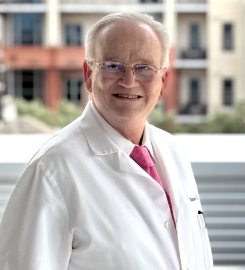
Skin cancer is the most prevalent form of cancer, affecting millions of Americans annually. However, with early detection and treatment, the survival rate significantly increases. At Houston Skin, we emphasize the importance of early detection and offer safe, effective clinical intervention. Our team has provided life-saving treatments to countless patients in the greater Houston area. Trust Houston Skin, a leading dermatology practice with board-certified specialists, for expert skin cancer treatment in Houston.
Protecting Your Skin
The old saying holds true with skin cancer: “An ounce of prevention is worth a pound of cure.” The best ways to mitigate your risk of skin cancer are to use 30+ SPF whenever you are going to be in direct sunlight for long and minimize direct sun exposure between 10AM and 4PM whenever possible. Remember, regularly checking your skin for moles or other abnormal growths and seeking a clinical opinion when necessary is also important. If you notice any changes on your skin, don’t hesitate to seek professional help. Prevention starts with you.
Types of Skin Cancer
Houston Skin provides comprehensive care for all types of skin cancer. Here’s an overview of the primary types:
Melanoma
Although less common, melanoma is the deadliest form of skin cancer, accounting for the majority of skin cancer-related deaths. It originates in melanocytes, the cells responsible for producing melanin, the pigment that gives skin its color. Melanoma often appears as a new mole or a change in an existing one. Look out for the ABCDEs of melanoma:
- Asymmetry: One half of the mole doesn’t match the other half.
- Border: The border is irregular, notched, or blurred.
- Color: The color is uneven, with shades of black, brown, tan, red, white, or blue.
- Diameter: The mole is larger than 6 millimeters (about the size of a pencil eraser), although melanomas can sometimes be smaller.
- Evolving: The mole is changing in size, shape, color, or elevation, or it’s bleeding, itching, or crusting.
Basal Cell Carcinoma
Basal cell carcinoma (BCC) is the most common type of skin cancer. It typically develops on sun-exposed areas, such as the face, neck, and hands. BCCs often appear as:
- A pearly or waxy bump
- A flat, flesh-colored or brown scar-like lesion
- A sore that bleeds, heals, and then reopens
While BCCs rarely spread to other parts of the body, they can grow large and cause damage to surrounding tissue if left untreated.
Squamous Cell Carcinoma
Squamous cell carcinoma (SCC) is the second most common type of skin cancer. It also tends to develop on sun-exposed areas. SCCs can appear as:
- A firm, red nodule
- A flat lesion with a scaly, crusted surface
- A new sore or a raised area on an old scar or ulcer
Although SCC is less likely to spread than melanoma, it can metastasize to lymph nodes and other organs if not treated early.
Merkel Cell Carcinoma
Merkel cell carcinoma (MCC) is a rare but aggressive type of skin cancer. It usually appears as a flesh-colored or bluish-red nodule, often on the face, head, or neck. MCC tends to grow quickly and can spread to other body parts.
Treatment Options
After your diagnosis, our board-certified dermatologists will create a personalized skin cancer treatment plan. During your consultation, we’ll provide detailed information about your treatment options.
Mohs Surgery
For skin cancer in sensitive areas like the face or genitals, or large or recurrent tumors, we recommend Mohs surgery. This specialized technique involves removing cancerous tissue layer by layer, examining each layer under a microscope until only cancer-free tissue remains. Mohs surgery offers the highest cure rates for many types of skin cancer, while minimizing the removal of healthy tissue and scarring.
Cryosurgery
Cryosurgery, or cryotherapy, uses liquid nitrogen to freeze and destroy abnormal tissue, including some skin cancers. It’s a quick and relatively painless procedure often used for precancerous lesions (actinic keratoses) and small, early-stage skin cancers.
Excision
Excision is a surgical procedure involving removing the cancerous tissue and a margin of healthy tissue. It’s a standard treatment for various types of skin cancer. The removed tissue is then examined under a microscope to ensure all cancer cells have been removed.
Photodynamic Therapy (PDT)
Photodynamic Therapy (PDT) utilizes a photosensitizing agent that selectively accumulates in abnormal cells. When activated by a specific wavelength of light, this agent triggers a reaction that destroys these cells, leaving healthy tissue unharmed.
Other Treatment Options
Depending on the type and stage of your skin cancer, other treatment options may be recommended, such as:
- Curettage and electrodesiccation: This procedure involves scraping away the cancerous tissue and then destroying any remaining cancer cells with an electric needle.
- Radiation therapy: This uses high-energy rays to kill cancer cells. It may be used for skin cancers that are difficult to remove surgically or for patients who cannot undergo surgery.
- Topical medications: Certain creams or ointments can treat some types of skin cancer, especially superficial BCCs and SCCs.
- Immunotherapy: This treatment helps your immune system fight cancer. It may be used for advanced melanomas or Merkel cell carcinomas.
Meet The Team
Our Houston team of Board-Certified Dermatologists and licensed skin care providers brings a wealth of experience and a passion for healthy skin. With extensive clinical experience and the highest levels of training, our doctors are committed to delivering exceptional care and achieving optimal results for every patient. We prioritize your comfort and safety, promoting a positive and reassuring experience throughout your journey to vibrant skin. We’re honored to be your trusted provider of quality medical dermatology care and your partners in achieving and maintaining your skin’s health.
Contact Houston Skin for Skin Cancer Treatment
Schedule a skin cancer treatment consultation at one of our convenient Houston Skin locations today. Our board-certified dermatologists will provide a personalized assessment and recommend the ideal treatments to help you heal and remove skin cancer. Call now or schedule a consultation online to take the first step towards a more confident, radiant you.


